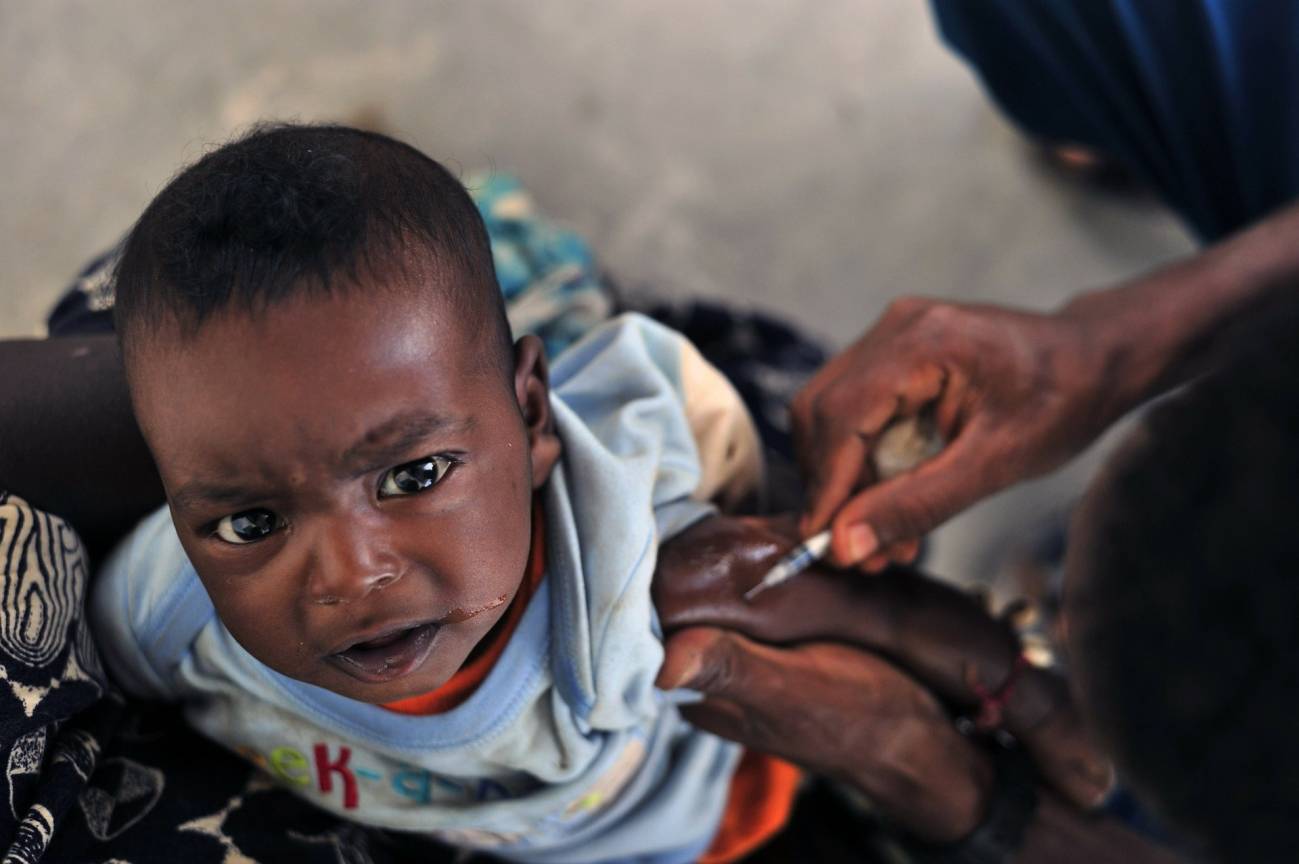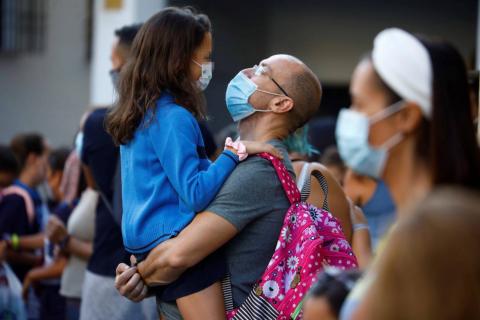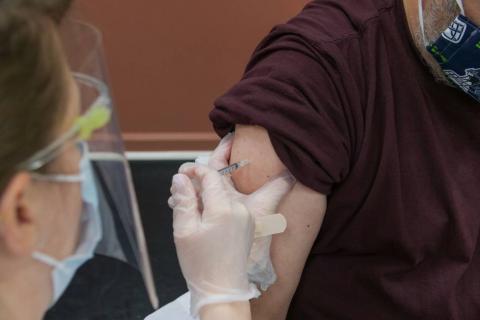COVAX, "the only global initiative that works with governments and manufacturers to ensure access of Covid-19 vaccines to all countries, regardless of their resources," explains the website of this platform formed by WHO, GAVI and the CEPI coalition, began distributing vaccines in early 2021. COVAX's goal was to have 2 billion doses by the end of2021, but according to the UNICEF vaccine panel it has only distributed about 590 million doses so far.
In addition, WHO, the African Vaccine Acquisition Trust (AVAT), the African Center for Disease Control and Prevention (Africa CDC) and COVAX itself have just called on donor countries and vaccine manufacturers tomake donations in a planned, time-bound manner.
With last-minute donations, "the risk of doses expiring increases dramatically," these institutions warn. Most donations to date have been made in this way, and "the trend must change".
Planned, not last-minute donations
"Although the overall wastage rate of COVAX vaccines is extremely low today," a GAVI spokesperson tells the Covid Vaccine Media Hub, "the wastage rate is likely to increase as supply grows in the coming months. To reduce this, we urge donor countries to ensure that donated doses have a minimum of ten weeks shelf life when they arrive in country,except where recipient countries indicate a willingness and capacity to absorb doses with a shorter shelf life."
This is one of the issues that can be improved, but not the only one. Three Spanish experts give their views to SINC at the Covid Vaccine Media Hub.
"Higher income countries have cornered the market"
"The problem is not economic," says Virginia Rodriguez, head of the advocacy project at the Barcelona Institute for Global Health (ISGlobal). "COVAX has the resources to acquire 2 billion doses,its target for this year. But higher income countries have cornered themarket by buying doses to vaccinate their populations several times over. Forthis reason, and in a way not originally foreseen, in recent months COVAX hasbecome a mechanism for distributing vaccine doses donated by the countries thathave cornered them.
"COVAX channels donations from countries with moreresources, but also acts as an intermediary in the purchase of vaccines from 50low-income countries (it does so by aggregating their demand, to improve its negotiating conditions with the industry). In practice, the large volume of purchases from wealthy countries has hindered thissecond capacity of COVAX.
"The hoarding of vaccines from high-income countries has resulted in COVAX being last in line in receiving vaccines produced and tobe produced," says Raquel Gonzalez, head of Institutional Relations at Médecins Sans Frontières. "The world is currently facing a problem ofvaccine shortages in middle- and low-income countries.
The hoarding of vaccines from high-income countries has resulted in COVAX being last in line in receiving vaccines produced and tobe produced
Raquel González, MSF
"The problem of lack of available vaccines forlower-income countries was exacerbated after the strong wave in India, Gonzalez explains: "COVAX is overly dependent on the Serum Institute of India,licensed to produce the vaccine developed by Oxford University and AstraZeneca. Faced with a deadly wave of cases in the country since March 2021, its government reduced the doses destined for export," further increasing COVAX's dependence on vaccine donations from high-income countries.
More power to COVAX to compete in purchasing doses
Adrián Alonso, a researcher at the Global Health Centre in Geneva (Switzerland), draws attention to the novelty and complexity of the COVAX system, which "poses a very ambitious objective that had not been tried before."
"However, I don't think that blaming COVAX for the failure is entirely fair, given that it has had to compete with countries thathave signed agreements to vaccinate their population up to five times with afull regimen". In his opinion, "more importance could have been given to COVAX as a mechanism for purchasing and distributing doses".
Public financing without social return conditions
Other factors outside COVAX have also contributed to the situation being the way it is, Alonso points out. One is the fact that the public sector has "financed much of the development of vaccines, from fundamental technology and basic research, with hardly any social return conditions imposed."
"No shareholder would invest without an estimated return on investment, but the public authorities have invested without ensuringthat their investment means an increase in global access, production capacity or transparency and leaving it to the market to decide the allocation of vaccines," Alonso points out.
The public authorities have invested without ensuringthat their investment means an increase in global access, production capacity or transparency and leaving it to the market to decide the allocation of vaccines
Adrián Alonso, Global Health Centre
"At worst, some governments introduced conditions for priority access for their population versus the rest of the world." He also criticizes the "frankly conservative" behavior of severalvaccine-producing companies, which have dominated "production anddistribution, constricting supply, without making great efforts to create orexpand production capacity to other regions."
A Spanish antigen test with open license
For Alonso, there have also been other untappedopportunities to improve global access, such as the creation of C-TAP, a platform created by WHO and Costa Rica for research institutes and companies tomake their knowledge and technology available −forfree or in exchange for royalties−for others to apply to increase production capacity, speed of development, etc.
The pharmaceutical industry did not support this initiative.In fact for now only the Spanish government has recently reached an agreementso that any company in the world can manufacture an antigen test developed by the CSIC.
Vaccines do not put themselves
Raquel González stresses that funds have been lacking foreverything necessary in a vaccination campaign besides the vaccine itself: thesalaries of health personnel, training or the cold chain infrastructure dependon national health budgets “which in countries with few resources are alreadymeager. These costs also cover "community awareness and involvementstrategies, something that has been lacking in many contexts, contributing toresistance to vaccination and lack of confidence," adds González.
"Misinformation remains a critical factor in this pandemic, and adequate resources have not been dedicated to overcome doubtsabout vaccines."
Misinformation remains a critical factor in this pandemic
Raquel González, MSF
What can Spain do?
Spain has committed to donate through COVAX a total of 22.5million of the vaccines licensed in the European Union and used in Spain, ofwhich at least 7.5 million will go to Ibero-American countries, the Spanish government explained.
Donations began last August. Subsequently, an increase indonations has been announced, to reach 50 million in the first quarter of 2022.
"Spain has taken significant steps to improve equitable access to vaccines in low- and middle-income countries," says Raquel González. "Since last May, where it presented the document "Vaccines for all" at the Porto Social Summit, it has expressed its openness tosupport the temporary exemption of some intellectual property agreements, as well as the vital support for C-TAP, where it has shared a new diagnostic testfor the detection of COVID-19.
It is the first open license shared globally. Adrián Alonso also believes that "Spain has been developing an action that differs fromthat of several Western countries". This expert highlights the recentlicensing agreement between CSIC and C-TAP, and recalls that Spain "was one of the first Western countries to position itself in favor of lifting intellectual property rights and a new pandemic treaty".
"In addition, it has participated in the funding of CEPI (public-private organization that funds the development of vaccines for diseases with epidemic potential, which funded the early development of vaccines such as Oxford, Curevac or Novavax), COVAX and has announced supportand commitment to strengthening the role and funding of WHO going forward."




